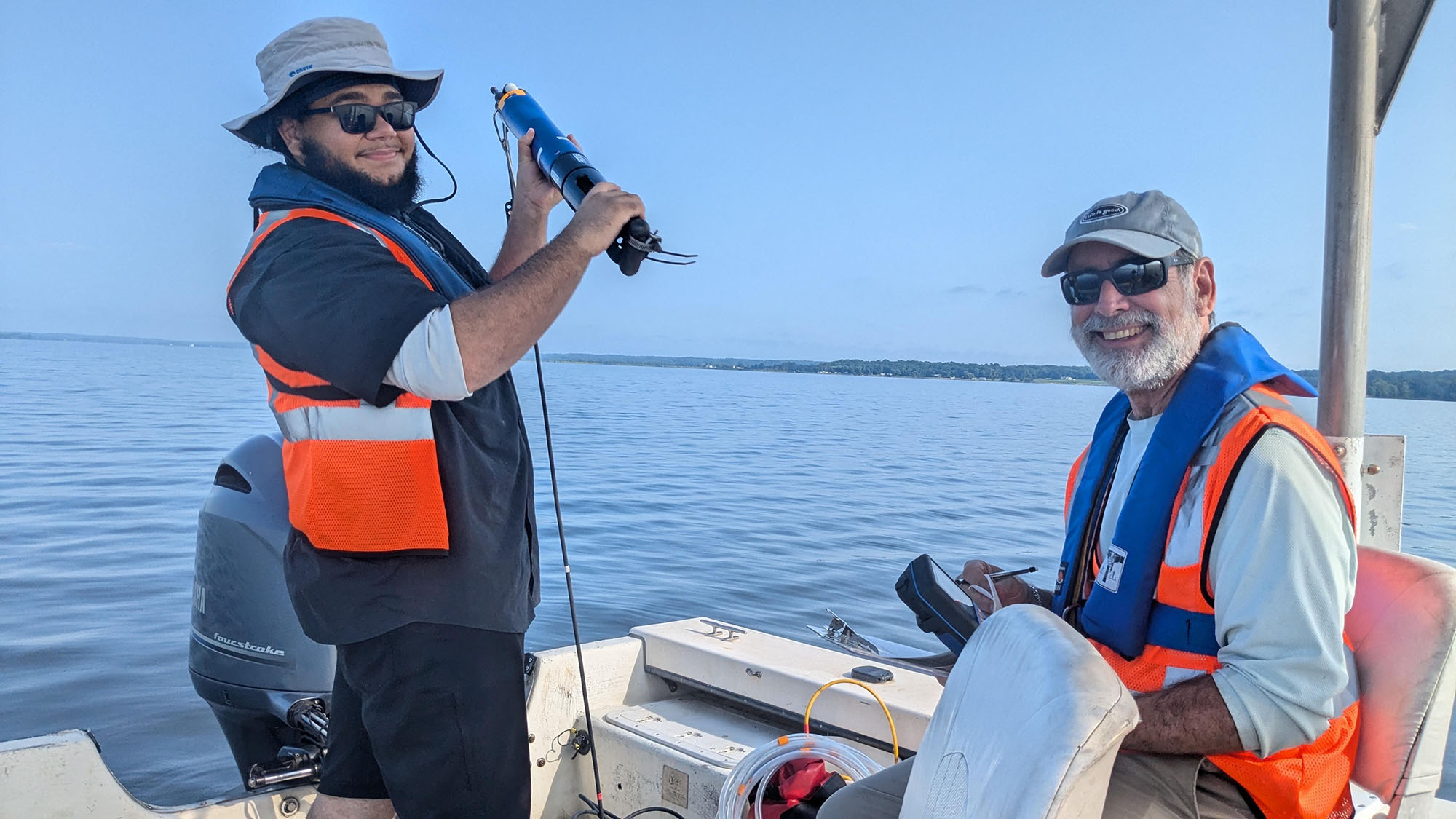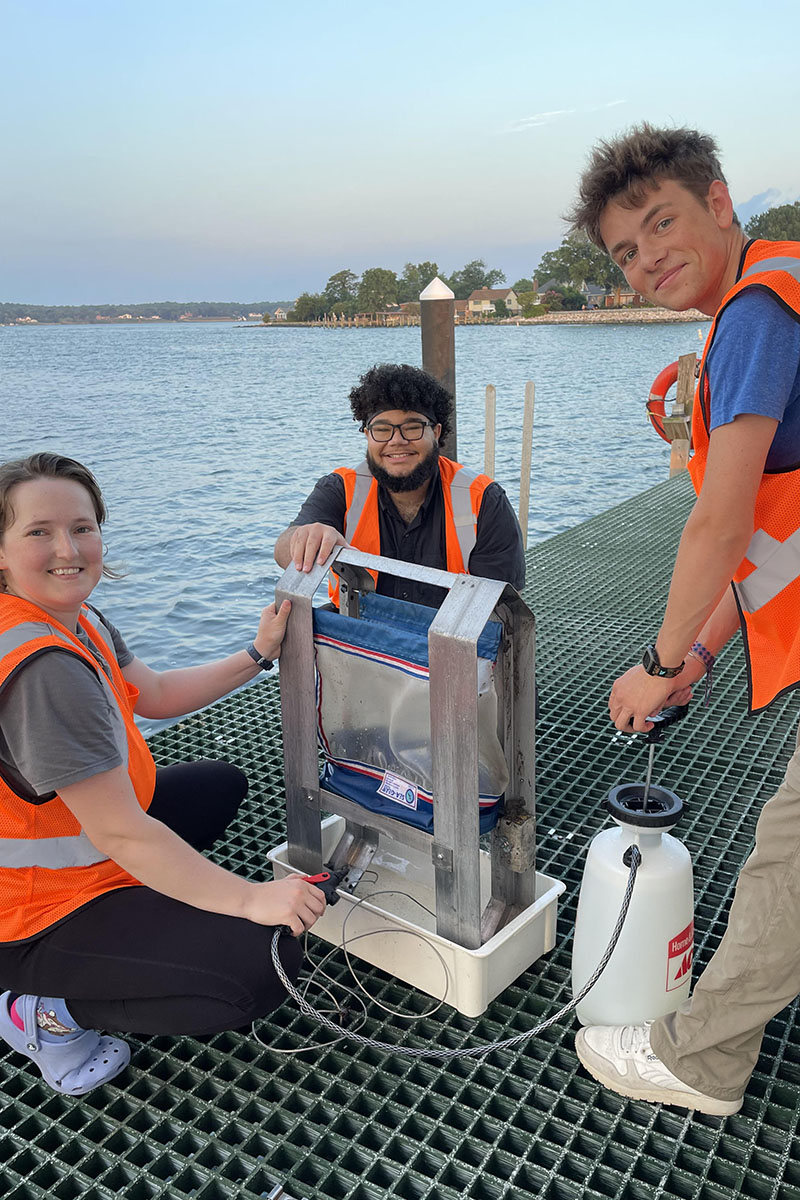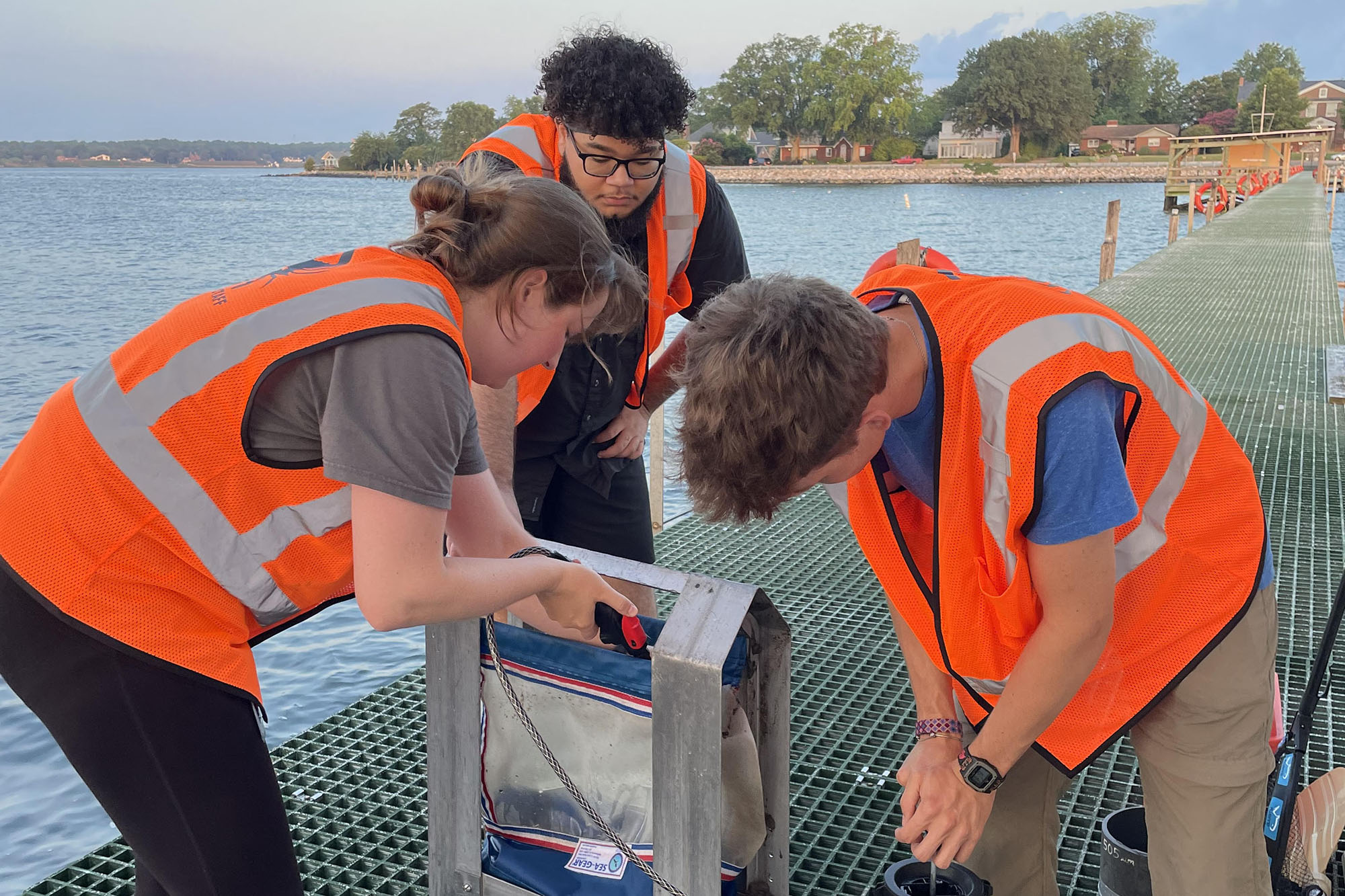Nitrogen tanks aren’t cheap.
Fortunately for Eckerd College junior Jonathan Ballard, Sigma Xi: The Scientific Research Honor Society has awarded him a $1,000 Grant in Aid of Research to complete his thesis on stone crab health in the rising ocean temperatures.
“I knew I was going to do the research one way or another,” says the marine science student from Houston. “Getting the grant helps ease my mind of how I am going to get it done.”
His thesis is called Determining the Impact of Thermal Stress and Hypoxia on Adult Stone Crab (Menippe mercenaria) Physiology, and Jonathan plans to use the nitrogen to lower the oxygen levels in water to mimic the conditions of when ocean temps rise precipitously.
Having funding to continue his work is one more thing for Jonathan to celebrate. He also spent the summer interning with the National Oceanic and Atmospheric Administration’s Inclusive NOAA Fisheries Internship Program (IN FISH) in Maryland—an opportunity he had found and pursued on his own.
His Eckerd mentor, Assistant Professor of Marine Science Philip Gravinese, Ph.D., says that’s just Jonathan’s style.
“Our first meeting, I think he was more prepared than I was,” Gravinese recalls. “When we got together for the first time to talk about research, I was impressed.”
During the 10-week paid undergraduate internship for U.S. citizens, Jonathan took a two-week course available for credit through the University of Maryland Eastern Shore and then got eight weeks of project experience working with a mentor at the Chesapeake Biological Lab in Solomons, Maryland. He also received a $6,000 stipend with lodging, travel, tuition and course supplies covered as well.
His work kept him in the computer lab simulating the life cycle of longfin squid, with occasional fieldwork to study the cephalopods in the Atlantic. “It’s nice because I’ve met a lot of useful contacts at the short class in New Jersey and met with a bunch of pros in the east coast NOAA office,” Jonathan says. Alumni of the IN FISH program have very high return rates to work for NOAA, according to Jonathan’s orientation.
Now that he’s back on campus, his thesis work resumes with his team of student researchers and a group of stone crabs. The Sigma Xi grant will cover one year’s worth of supplies.
Sigma Xi awarded 58 grants this funding cycle, and Jonathan was one of nine undergraduate recipients—and the only undergrad in Florida.
Founded in 1886, Sigma Xi is a nonprofit membership society of more than 70,000 scientists and engineers who were elected to the society because of their research achievements or potential. The organization has adopted the mission to honor scientific accomplishments, to encourage and to enhance the worldwide appreciation and support of original investigation in science and technology, and to foster worldwide a creative and dynamic interaction among science, technology and society.
Being a researcher has been Jonathan’s dream since he was a youth visiting Galveston and Hawaii and observing their contrasting marine environments.
As a high school student, he completed an associate degree in biology through dual enrollment and used the internet and the Colleges That Change Lives Conference to find a college that offered a robust marine science program and small class sizes.
During his first year at Eckerd, he applied for and was accepted into the First-Year Research Assistantship Program, where he began stone crab research in Gravinese’s lab.
Gravinese hopes Jonathan’s success will open the door for more Eckerd students to receive Sigma Xi funding and IN FISH placements.
“I think these smaller programs are a great complement to what undergraduate marine science programs can do,” Gravinese says. “To be able to get more of our students into programs like IN FISH or grants from Sigma Xi would be great. I really feel like this could be a Hollings [NOAA Scholarship] 2.0.”















